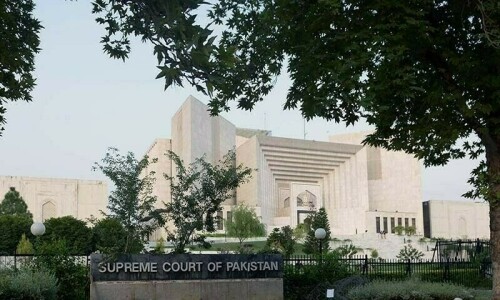NUSA DUA, Indonesia: India on Thursday faced mounting pressure to compromise in a global impasse over food security that has cast the future of the World Trade Organisation into doubt.
New Delhi's insistence that it be allowed to stockpile and subsidise grain for its millions of hungry poor has emerged as a major stumbling block at a WTO conference of trade ministers in Bali.
The WTO has warned that failure to reach a compromise on that and other issues could provide the nail in the coffin for the body's 12-year-old effort to remove trade barriers, which is at a stalemate.
“This is a fundamental issue. We will never compromise,” Indian Commerce and Industry Minister Anand Sharma told reporters.
The WTO launched its main “Doha Round” of talks in Qatar in 2001, aiming to create an open trading environment and rules that are fair to both rich and poor countries.
But protectionist disputes, particularly between the industrialised and developing worlds, have made progress elusive.
New WTO chief Roberto Azevedo of Brazil is pushing for an agreement in Bali on a more modest package touching on agricultural subsidies and other issue, hoping that can keep Doha on life-support.
French Foreign Trade Minister Nicole Bricq pointedly said India will be held responsible for any failure.
“India has a huge responsibility... I don't mean to be critical but when you are a big power, you accept such responsibilities,” she said.
With the clock ticking on the four-day conference, which ends Friday, diplomatic efforts stepped up.
Indonesian Trade Minister Gita Wirjawan, chair of the talks, said he and Azevedo were seeking to broker a compromise between India and the United States.
Washington and some other trading nations are said to feel the Indian position violates WTO limits on subsidies and fear stockpiled grain could end up on global markets, skewing prices.
The crux of the impasse is New Delhi's demand that it be made exempt from any WTO challenges over the issue indefinitely, while the Bali package would limit the exemption period.
Bricq said India's demand was “unreasonable.”
India's ruling Congress party is facing tough elections next year, but Sharma said domestic politics were not a factor in its WTO stance.
He framed the issue as a divide between industrialised countries and a developing world that he said viewed WTO rules as favouring rich nations.
“India speaks for the vast majority of people in the developing countries and the poor countries. India is not alone,” he said.
However Mark Kennedy of George Washington University said developing countries did not “appear to be rallying to India's cry”.
“It comes off more as a domestic political issue for India than a true commitment to be a leader for the developing world,” added Kennedy, who has advised the US government on trade issues.
Trade ministers have issued stark warnings that a failure to close gaps in Bali would fatally wound the WTO's influence in the world.
Azevedo has raised an alarm over alternative regional pacts between major trading nations, such as the 12-country Trans-Pacific Partnership spearheaded by Washington.
He said a trend in that direction would have “tragic” consequences for countless poor in developing countries around the world that are struggling to compete in the global marketplace.
“At stake is multilateralism, as well as the survival of the WTO. Multilateralism is the best form of protection for the most vulnerable,” Bricq said.










































